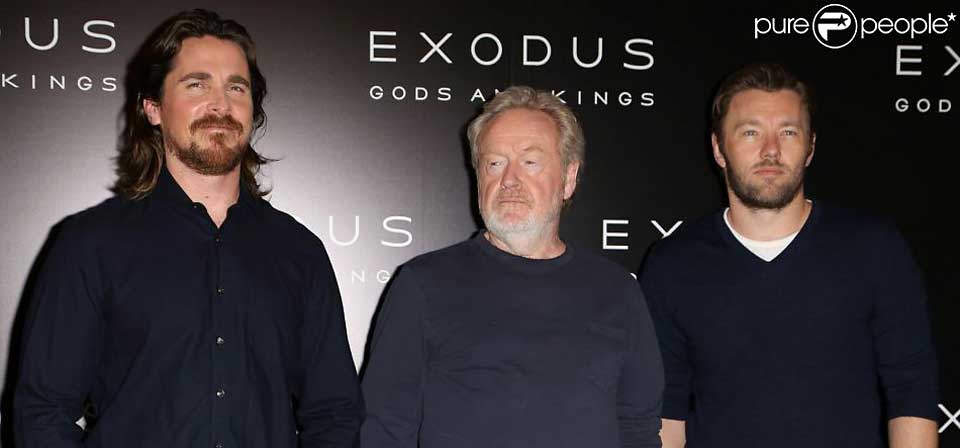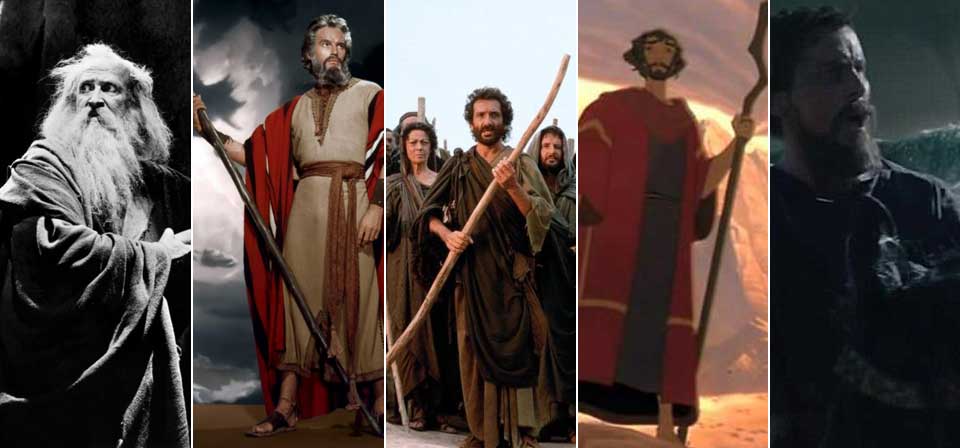Tags :: Moses

Exodus: Gods and Kings: Theological reflections
It’s a movie with many problems, like most of Scott’s recent epics (Prometheus, Robin Hood, Kingdom of Heaven), but Scott has a better story to work with here and adds something of value to the world of Bible cinema.

Interview: Exodus: Gods and Kings filmmakers Ridley Scott, Christian Bale and Joel Edgerton
Ridley Scott’s Exodus: Gods and Kings (in theaters Dec. 12) is the year’s second major Old Testament epic from a director who is not a believer — but don’t get Scott started on Noah’s rock-monster Watchers.

Moses at the movies
The Exodus is probably the Bible’s most cinema-ready story, the perfect Bible-movie subject. Unlike the stories of Noah, Abraham, David, Jesus, Peter, or Paul, it offers a sustained narrative structure, with a clear central conflict between a strong hero and a strong villain, building to a series of grand climaxes.
Moses, Spielberg & DeMille: Why Spielberg should do the next Moses movie
There’s something instantly appealing about the thought of Spielberg directing Hollywood’s first major live-action take on Moses’ story since Cecil B. DeMille’s 1956 crowning achievement, The Ten Commandments.
The Ten Commandments (2007)
Although less speculative and less freely adapted than the earlier film, The Ten Commandments shamelessly rips off interpretive conceits and even specific dramatic beats from The Prince of Egypt, from the menacing of Moses’ basket by a passing croc to the foundering of Ramses’ chariot on the shores of the Red Sea, allowing him to live to see the destruction of his army and the escape of the Israelites.
The Ten Commandments (1956)
For good and for ill, it’s as much a testament and a fixture of traditional American ideals and affections as a courthouse display of the stone tablets, and as weighty and solid.
The Prince of Egypt (1998)
Witness the astonishing animation of scale at work in capturing the towering monuments of Egypt, or the host of departing Hebrews: few if any traditional animated films have ever captured the sheer sense of size in this film. Watch the subtle storytelling in an early scene as the infant Moses, caught up in the Queen’s arms, eclipses the toddler Ramses in her line of vision, leaving him standing there with outstretched arms; foreshadowing the rivalry and ultimately the enmity between the heir to the throne and his Hebrew foster brother. Notice the small details in those quiet numinous moments: the pebbles rolling back at Moses’ feet at the burning bush; the halo of clear water around his ankles as the Nile turns to blood; the horror of an Egyptian servant as the surface of the water bubbles and the first frogs begin to flop out of the river onto the palace stairs; an extinguished candle flame or an offscreen sound of a jar crashing as the destroying angel swirls in and out among the Egyptians.
Recent
- Benoit Blanc goes to church: Mysteries and faith in Wake Up Dead Man
- Are there too many Jesus movies?
- Antidote to the digital revolution: Carlo Acutis: Roadmap to Reality
- “Not I, But God”: Interview with Carlo Acutis: Roadmap to Reality director Tim Moriarty
- Gunn’s Superman is silly and sincere, and that’s good. It could be smarter.
Home Video
Copyright © 2000– Steven D. Greydanus. All rights reserved.